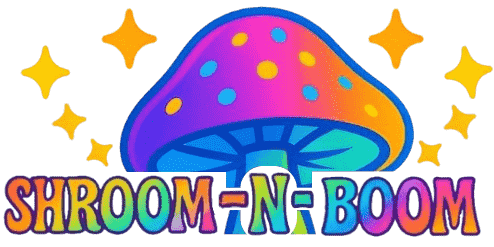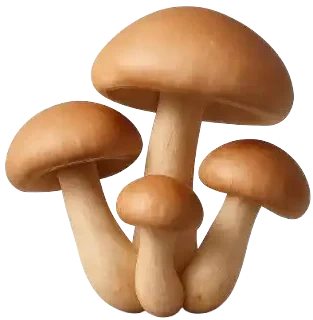
Legal Landscape & Regulations
Understanding Psilocybin Laws: A State‑by‑State and Global Overview
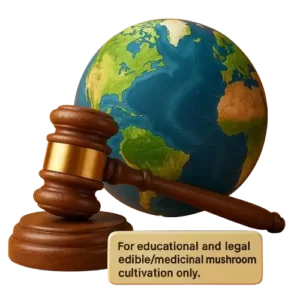
Welcome to the wild and (sometimes) wacky world of mushroom legislation—where one state’s “hands‑off” can be another’s “hands in cuffs.” Before you don your explorer’s hat and set off on a journey through fungal fields, it pays to know the legal terrain. After all, there’s nothing more memorable than accidentally cultivating your own psychedelic safari… and spending a vacation behind bars.
Knowing the legal status of psilocybin isn’t just about dotting the i’s on your permission slip; it’s about staying safe, staying compliant, and keeping your passport in your pocket (not in police evidence). From avoiding contaminated black‑market batches to ensuring you’re permitted to carry spores across state—or country—lines, a little legal homework can save a lot of headaches (and get‑out‑of‑jail‑free cards).
In this guide, we’ll serve up a clear, color‑coded map of where psilocybin is decriminalized, medically approved, or still kicking up legal dust. You’ll get an easy‑to‑scan state‑by‑state breakdown for the U.S., plus a global snapshot of international rules—because your next truffle‑hunting trip could be anywhere from Oregon to the Netherlands. And yes, we’ll even sprinkle in practical travel tips so you can cultivate good memories, not court cases.
Buckle up for a deep dive into statutes, ballot measures, and reform movements. By the end of this article, you’ll be the go‑to mushroom maven among your friends—armed with all the legal know‑how you need to grow, possess, or just plain geek out over psilocybin without stepping on the wrong side of the law. Let’s journey from prohibition to permission, one jurisdiction at a time!
Worldwide Psilocybin Legal Trends
Welcome to the global mushroom map—no compass required! From the rigid “psilo‑No‑sin” era of the 1970s to today’s patchwork of permissive policies, the legal mood toward psilocybin has swung harder than a pendulum in a psychedelic clock shop. Let’s zoom out and see where the fungi fun is flourishing…and where it’s still firmly forbidden.
From Prohibition to Decriminalization
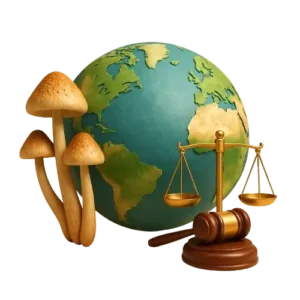 Remember when psilocybin was lumped in with the biggest baddies of the 1970 Controlled Substances Act? Back then, if you so much as whispered “magic mushrooms,” a gaggle of grim‑faced bureaucrats would slap you with the strictest bans and labelling. The world seemed content to stamp out any chance of spore‑spawned enlightenment.
Remember when psilocybin was lumped in with the biggest baddies of the 1970 Controlled Substances Act? Back then, if you so much as whispered “magic mushrooms,” a gaggle of grim‑faced bureaucrats would slap you with the strictest bans and labelling. The world seemed content to stamp out any chance of spore‑spawned enlightenment.
Fast‑forward a few decades, and something curious happened: researchers started publishing breakthrough studies on microdosing’s mood‑boosting perks and full‑dose therapy for PTSD, depression, and end‑of‑life anxiety. Suddenly, “shrooms” weren’t just party trick props—they looked like serious medicine.
- Early bans (1970s–1990s): Psilocybin classified alongside heroin. No exceptions.
- Quiet research era (2000s): Universities and MAPS quietly pilot clinical trials.
- First cracks in the wall (2010s): Oregon votes to decriminalize in 2020; Denver, D.C., and a handful of cities follow.
- Decriminalization wave (2020–present): Colorado and other states table full decriminalization and even regulated therapeutic frameworks.
What started as outright prohibition has morphed into local carve‑outs, ballot initiatives, and pilot therapy clinics. Still illicit in many corners? You bet. But a growing chorus of reformers has shifted the conversation from criminalization to compassion and science.
Therapeutic vs. Recreational Legal Frameworks
Not all psilocybin programs are created equal—some nations wrap it in a white coat, others hand out welcome mats for weekend revelers. Here’s how the world is splitting hairs (and spores) between clinical use and casual fun:
Approach | Example Countries | Key Notes |
Medical‑Only | Canada, Germany, Australia* | Licensed therapists prescribe psilocybin for PTSD, treatment‑resistant depression, etc. Requires doctor referral and tightly controlled facilities. |
Decriminalized | Portugal, Netherlands, Brazil | Personal possession is low priority for law enforcement. Sale and cultivation often still illegal. |
Regulated Recreational | Jamaica, Mexico** | No formal laws banning mushrooms—“magic mushroom tourism” thrives. Few (if any) age or quantity limits. |
Strict Prohibition | Japan, most of Asia, Middle East | Zero tolerance. Possession can carry hefty fines or prison time. |
*Australia: Psilocybin recently approved for use under the country’s special Access Scheme, but true recreational use remains illegal.
**Mexico: Certain indigenous communities have traditional exemptions, but national law still bans commercial sale.
Whether you need a prescription pad or just a laid‑back destination to nibble your way to nirvana, the global legal scene is as varied as mushroom species themselves. Next up: we’ll zoom in on your own backyard—state by state and country by country—to chart exactly where you stand (legally speaking) before you set those spores free.
U.S. Psilocybin Legal Status Map & Table
Before you book that cross‑country mushroom road trip, let’s get our bearings—legally speaking. Below you’ll find a handy color‑coded map and a sortable table that breaks down each state’s current psilocybin status. Think of it as your psychedelic GPS: follow the green for decriminalization, blue for medical‑only access, and steer clear of the big red “No‑Shrooms Zone.”
Color Legend
- 🟢 Green (Decriminalized): Possession & personal use are the lowest law enforcement priority. Cultivation often unregulated or lightly regulated.
- 🔵 Blue (Medicinal‑Only): Licensed programs allow psilocybin in clinical or therapeutic settings—but recreational use remains prohibited.
- 🔴 Red (Illegal): Strict bans on cultivation, possession, and use. Penalties can include fines or jail time.
| State | Status | Cultivation Allowed? | Possession Limit | Last Law Change | Notes |
|---|---|---|---|---|---|
| Alabama | 🔴 Illegal | No | N/A | — | — |
| Alaska | 🔴 Illegal | No | N/A | — | — |
| Arizona | 🔴 Illegal⁴ | No | N/A | Pending | Medical pilot bill under consideration |
| Arkansas | 🔴 Illegal | No | N/A | — | — |
| California¹ | 🟢 Decriminalized | Varies by city | Varies by city | Apr 2023 | Multiple local ordinances (Oakland, SF, SJ) decrim; statewide law still prohibits |
| Colorado | 🟢 Decriminalized | Yes | Up to 2 oz dried | Nov 2022 | Prop 122 legalized regulated therapeutic centers |
| Connecticut | 🔴 Illegal | No | N/A | — | — |
| Delaware | 🔴 Illegal | No | N/A | — | — |
| Florida | 🔴 Illegal | No | N/A | — | Decrim bills stalled |
| Georgia | 🔴 Illegal | No | N/A | — | — |
| Hawaii | 🔴 Illegal | No | N/A | — | — |
| Idaho | 🔴 Illegal | No | N/A | — | — |
| Illinois | 🔴 Illegal | No | N/A | — | Decrim bills introduced |
| Indiana | 🔴 Illegal | No | N/A | — | — |
| Iowa | 🔴 Illegal | No | N/A | — | — |
| Kansas | 🔴 Illegal | No | N/A | — | — |
| Kentucky | 🔴 Illegal | No | N/A | — | — |
| Louisiana | 🔴 Illegal | No | N/A | — | — |
| Maine | 🔴 Illegal | No | N/A | — | Decrim bills filed |
| Maryland | 🔴 Illegal | No | N/A | — | — |
| Massachusetts² | 🔴 Illegal | No | N/A | Nov 2022 | Question 4 legalized marijuana but excluded psychedelics |
| Michigan | 🔴 Illegal | No | N/A | — | Decrim bills in committee |
| Minnesota | 🔴 Illegal | No | N/A | — | — |
| Mississippi | 🔴 Illegal | No | N/A | — | — |
| Missouri | 🔴 Illegal | No | N/A | — | — |
| Montana | 🔴 Illegal | No | N/A | — | — |
| Nebraska | 🔴 Illegal | No | N/A | — | — |
| Nevada | 🔴 Illegal | No | N/A | — | Misdemeanor fines |
| New Hampshire | 🔴 Illegal | No | N/A | — | — |
| New Jersey | 🔴 Illegal | No | N/A | — | Decrim resolution introduced |
| New Mexico | 🔴 Illegal | No | N/A | — | — |
| New York¹ | 🟢 Decriminalized | Varies by locality | Up to 1 oz (NYC) | May 2023 | NYC decrim; statewide push ongoing |
| North Carolina | 🔴 Illegal | No | N/A | — | — |
| North Dakota | 🔴 Illegal | No | N/A | — | — |
| Ohio | 🔴 Illegal | No | N/A | — | — |
| Oklahoma | 🔴 Illegal | No | N/A | — | — |
| Oregon | 🟢 Decriminalized | Yes | Up to 1 oz dried | Nov 2020 | Psilocybin Services Act created licensed therapy program |
| Pennsylvania | 🔴 Illegal | No | N/A | — | — |
| Rhode Island | 🔴 Illegal | No | N/A | — | Decrim resolution filed |
| South Carolina | 🔴 Illegal | No | N/A | — | — |
| South Dakota | 🔴 Illegal | No | N/A | — | — |
| Tennessee | 🔴 Illegal | No | N/A | — | — |
| Texas | 🔴 Illegal | No | N/A | — | Zero‑tolerance; penalties up to 180 days jail |
| Utah | 🔴 Illegal | No | N/A | — | — |
| Vermont | 🔴 Illegal | No | N/A | — | Decrim bills awaiting vote |
| Virginia | 🔴 Illegal | No | N/A | — | — |
| Washington³ | 🔵 Medicinal‑Only | No | N/A | Nov 2021 | Initiative 190 allows psilocybin clinics; recreational still banned |
| West Virginia | 🔴 Illegal | No | N/A | — | — |
| Wisconsin | 🔴 Illegal | No | N/A | — | — |
| Wyoming | 🔴 Illegal | No | N/A | — | — |
| District of Columbia | 🟢 Decriminalized | Yes | Up to 0.5 oz dried | Nov 2020 | Decrim via council vote |
- Statewide decriminalization bills are in committee; local ordinances vary.
- Washington’s pilot program restricts psilocybin to licensed facilitators—no backyard grows.
- Arizona’s medical pilot bill passed committee but awaits full legislative approval.
How to Use the Table
- Sort by Status to quickly see where you can legally experiment (🟢 Green) versus where you must tread carefully (🔴 Red).
- Filter by Cultivation to find states where growing your own is (or soon will be) possible.
- Check “Date of Last Law Change” to gauge how “fresh” each policy is—newer changes may still lack full regulation details.
- Read “Notes” for ballot-initiative context: these tell you which states are on the verge of reform.
Whether you’re a researcher, a recreational explorer, or just injury‑prone to curiosity, you now have the ultimate guide to each state’s psilocybin rules. Next up: international laws and travel tips so you can plan your next mycological adventure with confidence (and a clean criminal record).
What “Decriminalized,” “Medicinal,” and “Illegal” Really Mean
You’ve seen the map, you’ve studied the table—now let’s decode the legal jargon. “Decriminalized” isn’t quite a hall pass, “medicinal” isn’t the same as “buying at the pharmacy,” and “illegal” means exactly what it sounds like (spoiler: not good). Here’s the low‑down, served with a side of wit and a heap of hard facts.
Decriminalization vs. Full Legalization
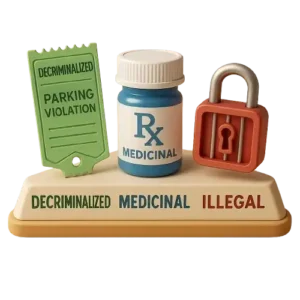 When a state decriminalizes psilocybin, it doesn’t exactly hand out party favors. Instead, they agree to treat possession and personal use as a low‑priority offense—think parking ticket, not grand theft auto. You won’t get locked up for your homegrown hobby, but it’s not quite an approved pastime either.
When a state decriminalizes psilocybin, it doesn’t exactly hand out party favors. Instead, they agree to treat possession and personal use as a low‑priority offense—think parking ticket, not grand theft auto. You won’t get locked up for your homegrown hobby, but it’s not quite an approved pastime either.
- Enforcement: Police may issue citations or warnings instead of arrests.
- Penalties: Fines often under $100–$500; no felony records for small amounts.
- Quality‑Control: Without a regulated marketplace, your “perfect” flush might still come laced with mystery contaminants. Buyer beware!
Full legalization, on the other hand, is rare. It means regulated cultivation, sale, and often licensed storefronts or therapy centers—like Oregon’s supervised psilocybin services program. Think of it as the difference between “polite nod” and “VIP backstage pass.”
Medicinal‑Only Frameworks
In medicinal‑only jurisdictions, psilocybin is treated like a prescription drug—no casual cupcakes for your next picnic. Licenses, background checks, and trained facilitators are the norm.
- Licensing: State‑issued permits for clinics and facilitators.
- Patient Eligibility: You typically need a qualifying condition (e.g., treatment‑resistant depression, PTSD), an official diagnosis, and often a referral from a licensed psychiatrist or physician.
- Therapist Requirements: Facilitators must undergo specialized training (anywhere from 50 to 200 hours) on dosing protocols, crisis management, and integration therapy.
- Session Structure: Guided sessions in controlled environments, often lasting 4–8 hours, with pre‑ and post‑therapy integration meetings.
This model emphasizes safety and consistent outcomes, but you won’t find any walk‑in doses for creative brainstorming.
Strict Prohibition & Penalties
If a state is in the “absolutely not” camp, psilocybin remains a forbidden fruit—and the law is serious about it.
- Possession: Misdemeanor charges can carry fines up to $1,000 and jail time of 30–180 days.
- Cultivation: Felony offenses in many states—think 1–5 years behind bars and fines up to $5,000 or more, depending on the amount grown.
- Distribution: Selling or trafficking can escalate charges into higher‑level felonies with sentences exceeding 10 years.
In these jurisdictions, even carrying a spore print (no active psilocybin present) can land you in legal limbo—so don’t pack those lab supplies unless you’re ready for a courtroom cameo.
By understanding these categories, you’ll know exactly what rights you have—and what risks you’re taking—no matter where you wander. Next up: let’s pack our bags (legally) and explore psilocybin’s international landscape!
Major Countries & Regions You Should Know
Ready for a world tour without leaving your armchair? Psilocybin’s legal status varies more dramatically than a travel blogger’s Instagram feed—one minute you’re cruising through decriminalized paradise, the next you’re tip‑toeing around strict prohibition. Buckle up as we highlight four key global regions, each with its own mushroom‑minded twist.
Canada
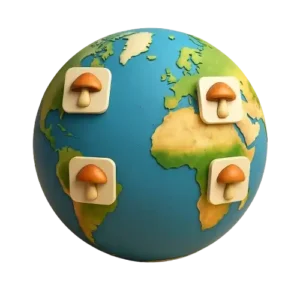 Federal exemption for therapeutic use; provincial differences
Federal exemption for therapeutic use; provincial differences
Canada surprised everyone in August 2020 when Health Canada granted Section 56 exemptions, legally allowing terminally ill patients (and soon, therapists in training) to receive psilocybin-assisted therapy. No more “underground salons”—this is official, doctor‑approved medicine. However, provinces vary:
- British Columbia & Ontario: Leading the charge with specialized clinics and training programs.
- Quebec: A bit more cautious—approvals processed on a case‑by‑case basis, slower turnaround.
- Other Provinces/Territories: Mostly following federal guidelines but lacking widespread clinic networks.
Key takeaway: If you qualify, you can access legal psilocybin therapy anywhere in Canada—but your wait time and local resources depend on the province.
Europe (Portugal, Netherlands, Germany)
Decriminalization in Portugal; “smart shops” in the Netherlands
Europe’s approach feels like a continental potluck:
- Portugal: Since 2001, all drugs—including psilocybin—have been decriminalized. Possession is treated as a public‑health issue, not a crime. No fines for small amounts, but expect mandatory counseling if you get flagged.
- Netherlands: Psilocybin mushrooms themselves are banned, but magic truffles (the underground sclerotia) are legal and sold openly in “smart shops.” These truffles contain the same active compounds and come with dosage guidance—your go‑to for a legally awkward trip.
- Germany: As of early 2024, psilocybin can be prescribed for treatment‑resistant depression under strict medical supervision. Patients need a psychiatrist’s prescription and must use it in approved clinics—no recreational corner‑store sales here.
Key takeaway: In Europe, you can stroll into a Lisbon clinic or Amsterdam smart shop (for truffles), while Berlin’s offices quietly dispense therapeutic doses—each country writes its own psilo‑rules.
Oceania (Australia, New Zealand)
Recent pilot programs, how to access legal medical psilocybin
Down Under, the fungi future is bubbling up:
- Australia: In February 2023, the Therapeutic Goods Administration reclassified psilocybin and MDMA as Schedule 8 controlled medicines, meaning psychiatrists can now prescribe them for PTSD and treatment‑resistant depression. Pilot sites have popped up in Melbourne and Sydney—but you’ll need a detailed referral, and outback culturing is still off‑limits.
- New Zealand: Still maintaining a tight grip—psilocybin is Class A (highest‑risk) under the Misuse of Drugs Act. However, in 2024 the government green‑lit controlled clinical trials, and a handful of research universities are recruiting participants. Recreational use remains illegal, but academics are quietly charting a therapeutic path.
Key takeaway: Australians can legally journey inward with therapy‑grade mushrooms (if they jump through enough hoops), while Kiwis watch from the sidelines until trials prove psilocybin’s safe.
Latin America (Brazil, Jamaica)
Cultural usage vs. legal grey areas
Latin America serves up a mixed platter of tradition and ambiguity:
- Brazil: No specific law against psilocybin mushrooms—meaning they fall into a legal grey zone. Indigenous ceremonial use of psychedelic fungi is culturally protected, and tourists often encounter locally foraged varieties without trouble.
- Jamaica: Completely legal. Grow, possess, sell, and even organize guided retreats—psilocybin tourism thrives here. The island’s regulation is practically non‑existent, but operators self‑regulate for quality and safety to maintain a good reputation.
Key takeaway: In Brazil, cultural context keeps mushroom forays under the radar, whereas Jamaica welcomes your next “mushroom vacation” with open arms and no legal fine print.
Whether you’re plotting a therapeutic retreat in Toronto, picking up truffles in Amsterdam, or sunbathing on a Jamaican psychedelic getaway, this guide equips you with the global know‑how to travel—and trip—responsibly. Up next: packing your bags and planning those cross‑border adventures without a legal hangover!
Staying Safe & Legal When Traveling with Psilocybin
Staying Safe & Legal When Traveling with Psilocybin
Jet‑setting with your mushroom passion? Whether you’re chasing therapeutic retreats or simply curious about global fungi scenes, a little prep goes a long way toward keeping your trip memorable for all the right reasons—rather than an enforced layover in a customs holding cell. Here’s how to globe‑trot smart and stay on the right side of the law.
Before You Go: Research Local Regulations
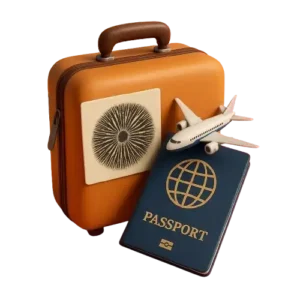
- Online Deep‑Dive: Don’t rely on rumor or travel blogs alone—visit official government websites, embassy advisories, and reputable legal‑news outlets.
- Local Variations: Even within a country, regions can differ. For example, California cities have city‑level decriminalization despite state laws, and Australian states may interpret federal rules differently.
- Quantities & Definitions: Check how “possession limit” is measured (grams vs. ounces) and whether it’s dried mushrooms, fresh, or spores. Spoiler: definitions matter when the police start asking questions.
Transporting Spores vs. Mature Mushrooms
- Spores (Mostly Harmless…Legally): In many U.S. states and countries, spore syringes or prints aren’t explicitly illegal—because they contain no active psilocybin. That said, some states ban spores outright. Always confirm before you pack that spore print in your carry‑on.
- Mature Mushrooms (Coded Cargo): Fresh or dried mushrooms are the primary red flag. Even in decriminalized regions, border checkpoints treat them like contraband. If you must move mushrooms, use private ground transport in small quantities—though the only truly safe option is to refrain.
Medical Tourism: Qualifying in Legal Jurisdictions
- Know the Clinic Requirements: Countries like Canada and Australia require a formal psychiatric diagnosis, referral letters, and pre‑screening to join a psilocybin therapy program. Don’t assume walk‑in access!
- Travel Paper Trail: Bring all medical documentation—diagnoses, referral letters, proof of appointment—printed and in digital form. Clinic staff will ask, and border agents might too.
- Insurance & Liability: Most travel insurance doesn’t cover controlled substances. Ask if the retreat or clinic offers liability waivers or post‑session medical support in case of unexpected reactions.
What to Do If You’re Stopped at Customs or Local Police
- Stay Calm & Polite: Losing your temper won’t help. A polite, respectful demeanor can tone down a confrontational officer.
- Know Your Rights: In many countries, you have the right to legal counsel before answering detailed questions. Exercise that right—“I’d like to speak with my lawyer” is universally understood.
- Document the Encounter: If you’re permitted, discreetly note badge numbers, names, and timestamps. This can help later if you need legal representation.
- Seek Consular Help: If you’re abroad, contact your country’s embassy or consulate immediately. They can advise on local laws, provide translation assistance, and (occasionally) intervene on your behalf.
- Plan for the Worst, Hope for the Best: Always travel with an emergency fund and a backup plan—bookings that can be rescheduled, a friend back home ready to wire bail money, etc.
By doing your homework, keeping documentation at the ready, and respecting local law enforcement, you’ll minimize legal headaches and maximize the chance of a smooth, enlightening journey. Safe travels—and happy mycology!
What’s on the Horizon in Psilocybin Law
If you thought psilocybin reform was a slow‑motion glacier, think again—new cracks are appearing faster than you can say “spore print.” From federal pilot programs to ballot boxes and global health bodies, here’s what mushroom mavens should watch next.
Federal Reform Bills: Beyond “Right to Try”
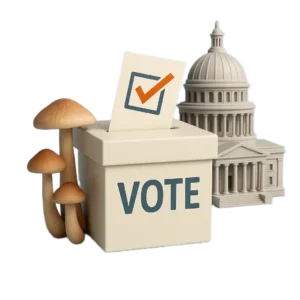 The federal government’s “Right to Try” Act once let terminally ill patients access investigational therapies—and now, psilocybin advocates are pushing to expand that to psychedelics. Two notable bills on the docket:
The federal government’s “Right to Try” Act once let terminally ill patients access investigational therapies—and now, psilocybin advocates are pushing to expand that to psychedelics. Two notable bills on the docket:
- The Compassionate Access Expansion Act (2025): Would allow patients with severe PTSD or depression to seek psilocybin treatment under FDA’s expanded access program, bypassing years of red tape.
- The Psychedelic Research & Therapy Act (2026): Sets aside federal grants for clinical trials in academic centers, with the aim of fast‑tracking psilocybin toward FDA approval.
Why it matters: If these pass, you could see federally funded studies—and perhaps even an over‑the‑counter “microdose in Aisle 5” scenario down the road…okay, maybe not that fast, but big strides indeed.
2025–2026 Ballot Measures to Watch
States and municipalities remain the real action hotspots. Several reform campaigns are gearing up for upcoming ballots:
- California Psilocybin Regulation Initiative: A 2026 effort aiming not just to decriminalize but to establish licensed “psilo‑lounges” in major cities, similar to Colorado’s retail cannabis model.
- Massachusetts Decriminalization Round 2 (2025): After last year’s narrow defeat, activists are refining their language to focus on small‑scale home cultivation rather than accessorized social consumption.
- Florida Therapeutic Psilocybin Amendment (2026): Leveraging successful medical marijuana frameworks to carve out a patient‑only therapy pathway.
Why it matters: Ballot propositions can change overnight; staying plugged into local campaigns (and donating responsibly) could shift the legal landscape in your backyard—or backyard garden.
International Treaty Negotiations & WHO Recommendations
Psilocybin isn’t just a domestic affair—global bodies are weighing in, too. The World Health Organization (WHO) recently reviewed psilocybin’s safety profile and sent a letter to the UN recommending down‑scheduling it under international treaties. If the UN Commission on Narcotic Drugs acts on this in late 2025:
- Lower international controls: Psilocybin could move from Schedule I (no medical use) to Schedule IV (low risk, recognized medical benefits), making cross‑border research and medical import/export far easier.
- National policy ripples: Countries bound by UN treaties would then be encouraged (but not forced) to adjust their domestic laws—potentially igniting reform waves in Asia, Africa, and Latin America.
Why it matters: A treaty‑level shift would be the biggest global green light yet, smoothing the path for pharma‑grade psilocybin production and international clinical collaborations—plus, it’d give policymakers worldwide the cover they need to modernize outdated statutes.
Bottom Line: From U.S. Congress to your state ballot, and all the way up to U.N. treaty talks, psilocybin law reform is picking up speed. Keep an eye on these developments—because the next time you hear “shrooms,” you might just think “short‑term investment opportunity.” (Or at least, a chance to finally get that licensed retreat you’ve been dreaming of.)
Interactive Resources to Stay Informed
Keeping up with psilocybin laws can feel like chasing a rolling mushroom cap down a hill—always shifting and never quite in the same place twice. Luckily, we’ve assembled a toolkit of dynamic resources so you can stay ahead of legal changes without resorting to midnight Reddit deep dives.
Embed: Live Psilocybin Legal Status Map
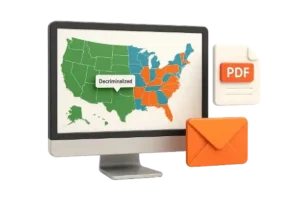 Imagine a world map that color‑codes every jurisdiction in real‑time—no more guessing if that next vacation stop is a “green light” or a “red flag.” By embedding a Google Maps layer (or using a custom plugin), you can:
Imagine a world map that color‑codes every jurisdiction in real‑time—no more guessing if that next vacation stop is a “green light” or a “red flag.” By embedding a Google Maps layer (or using a custom plugin), you can:
- Pinpoint status at a glance: hover over a state or country to see “Decriminalized,” “Medicinal‑Only,” or “Illegal.”
- Filter views by category, so you only see the green‑lit zones for personal use or the blue therapeutic areas.
- Auto‑update whenever a new law passes, so this map is never “last year’s news.”
Pro tip: Look for WordPress plugins like “Interactive Geo Charts” or “WP Google Maps” with custom data layers—then upload our up‑to‑date JSON feed and watch your map spring to life.
Downloadable PDF: State & Country Status Table
For those moments when you need an offline cheat‑sheet (or a printable handout for your next mushroom‑minded meet‑up), grab our comprehensive PDF:
- Columns: Jurisdiction, Cultivation Rules, Possession Limits, Latest Law Change, Ballot Initiatives
- Color‑coded rows: Greens, blues, and reds match the map legend for instant visual cues
- Update schedule: We refresh it quarterly and auto‑notify you of new versions
How to use it: Embed a “Download Now” button in your page and link it to /downloads/psilo-legal-status.pdf. Your visitors will thank you when they can whip out the PDF in a pinch—and you’ll look like the mushroom‑law MVP.
Newsletter Signup: “Legal Alerts”
Legislation moves fast, and sometimes faster than you can brew your next batch. Our Legal Alerts newsletter delivers:
- Breaking news on new psilocybin bills and ballot measures
- Deep dives into complex regulatory changes (think: how to read that 200‑page statute without a law degree)
- Event notices for public hearings, reform rallies, and clinical trials recruiting participants
Placement tips:
- Add a compact signup form at the bottom of your “Legal Landscape” page with a catchy call‑to‑action—“Don’t Miss a Spore!”
- Use a double‑opt‑in plugin (e.g., Mailchimp or Sendinblue) to keep your list clean and compliant with GDPR/CCPA.
- Offer a free “Legal Quick‑Start Guide” PDF as an incentive for new subscribers—everyone loves instant value.
With these interactive tools—an always‑live map, a ready‑to‑print PDF, and a no‑nonsense newsletter—you’ll never be left in the dark about psilocybin’s legal twists and turns. Bookmark this section, subscribe to updates, and grow your knowledge (legally, of course)!
Quick Answers to Your Top Legal Concerns
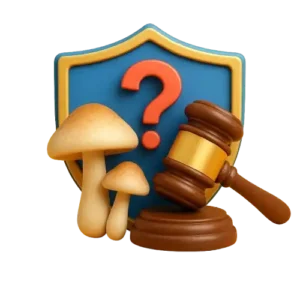 Q: Can I cultivate at home if my state decriminalized?
Q: Can I cultivate at home if my state decriminalized?
A: Decriminalization means law enforcement treats small‑scale possession and personal use as a low priority—think “parking ticket” instead of “felony grand theft.” However, it does not automatically grant you a green light to set up a spore lab in your living room. Always check whether your city or county has specific ordinances about home cultivation. In some decriminalized areas, growing even a handful of mushrooms can still draw a fine or civil citation. Bottom line: decriminalized ≠ legalized—do your local homework before firing up the pressure cooker.
Q: How do I apply for a medical exemption?
A: Medical‑only programs treat psilocybin like any other controlled therapy. Here’s the typical playbook:
- Find a qualifying condition. Common ones include treatment‑resistant depression, PTSD, or end‑of‑life anxiety.
- Get a referral. You’ll need a licensed psychiatrist or physician to diagnose your condition and recommend psilocybin therapy.
- Submit your application. Complete the state’s “compassionate use” or “expanded access” paperwork—often online, with personal and medical documentation.
- Wait for approval. Processing times vary (anywhere from 2 weeks to a few months). Once approved, you’ll receive a permit or patient ID that you present at a licensed clinic.
Pro tip: Keep digital and hard‑copy backups of every form and email—clinic staff and border agents love paperwork as much as mushrooms love dark, humid corners.
Q: What penalties should I expect in an illegal state?
A: If your jurisdiction still labels psilocybin as illicit, penalties can be harsh:
- Possession: Generally a misdemeanor—fines from $100 to $1,000 and up to 6 months in jail for small amounts.
- Cultivation: Often a felony—1 to 5 years behind bars and fines up to $5,000 (or more, depending on quantity).
- Distribution/Sale: Treated as drug trafficking—sentences from 5 to 20 years, and hefty fines.
Remember, even a single spore print can land you in legal limbo in some states. When in doubt, treat any mushroom‑related material as contraband unless you’ve confirmed otherwise.
Q: Where can I find the official statutes?
A: For rock‑solid legal references, go straight to the source:
- State Legislature Websites: Search “[Your State] Revised Statutes” or “[Your State] Code” plus “psilocybin” or “hallucinogenic substances.”
- Federal Law (USA): Check the Controlled Substances Act, Title 21 U.S. Code, Section 812. Psilocybin is Schedule I under federal law.
- International Treaties: The UN Single Convention on Narcotic Drugs (1961) lists psilocybin under Schedule I. Visit the UN’s website or the WHO’s psychopharmacology committee reports for treaty details.
- Legal Databases: Websites like Justia, FindLaw, and LexisNexis provide searchable collections of statutes and case law (some require a subscription, but basic access often is free).
Bookmark these links, set Google Alerts for key phrases like “psilocybin legislation,” and you’ll always know exactly where the legal bar is set—no guesswork required.
Navigating Psilocybin Legality with Confidence
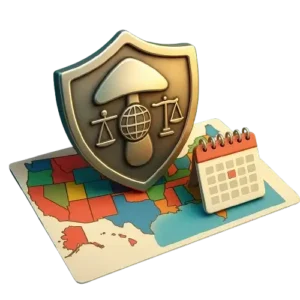 You’ve now journeyed from the early “no‑fungus‑allowed” days of the 1970s to today’s patchwork of decriminalized zones, clinical programs, and globe‑trotting travel tips. If there’s one takeaway, it’s that knowledge is your best spore‑shield—keeping you out of legal trouble, and in the driver’s seat of your own mycological adventures.
You’ve now journeyed from the early “no‑fungus‑allowed” days of the 1970s to today’s patchwork of decriminalized zones, clinical programs, and globe‑trotting travel tips. If there’s one takeaway, it’s that knowledge is your best spore‑shield—keeping you out of legal trouble, and in the driver’s seat of your own mycological adventures.
- Stay Fresh: Laws change faster than mushrooms pop up after a rain. Bookmark this page, set a calendar reminder to check for updates, and subscribe to our Legal Alerts newsletter so you’re always in the loop.
- Be Prepared: Whether you’re experimenting at home, planning a psychedelic retreat, or simply geeking out with friends, use the interactive map, downloadable PDF, and FAQ sheet we’ve provided. They’re your go‑to references for safe, compliant cultivation and travel.
- Keep Learning: Don’t stop here! Dive deeper into our Academy:
- DIY Substrate Recipes — Master the perfect grow formula before you even think about legality.
- Troubleshooting & Problem‑Solving — Learn quick fixes for common grow hiccups, so your harvest—and your legal standing—stays solid.
Armed with this comprehensive guide, you’re ready to navigate the evolving world of psilocybin law with humor, savvy, and zero regret. Now go forth—grow, research, travel, and trip responsibly!
